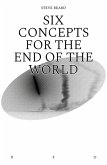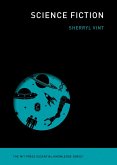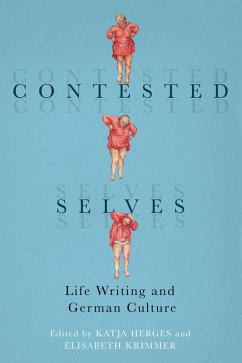Shows German Science Fiction's connections with utopian thought, and how it attempts Zukunftsbewältigung: coping with an uncertain but also unwritten future.
Since its beginnings, German Science Fiction (or SF) has engaged with social change and technological progress, often drawing from utopian thought. The writer Kurd Laßwitz challenged the authoritarian Wilhelmine order; later, filmdirector Fritz Lang provided a searing critique of Weimar society. Meanwhile utopian thinkers like Ernst Bloch and Herbert Marcuse insisted on the possibility of hope, even in the face of totalitarianism. During the Cold War, German utopian writing and filmmaking were vital both as a warning and as a creative imagining of possible futures. More recently, as rapid scientific and technological advances have continued, literary and cinematic responses have become increasingly dystopian in outlook, reflecting fears connected with globalization, advances in artificial intelligence and genetic engineering, and persistent challenges like climate change, hunger, migration, and terrorism.
This book explores German SF's responses to the question how humanity can match technological advances with social, ethical, and moral progress. It surveys German utopian thought and the German SF tradition-both literary andcinematic-providing close readings of selected works that paradoxically reflect boundless optimism for the possibility of change and increasing pessimism in its likelihood. English translations are provided throughout. Building onits rich tradition but now confidently entering the mainstream, German SF attempts Zukunftsbewältigung: coping with an uncertain but also unwritten future.
Ingo Cornils is Professor of German Studies at the University of Leeds.
Since its beginnings, German Science Fiction (or SF) has engaged with social change and technological progress, often drawing from utopian thought. The writer Kurd Laßwitz challenged the authoritarian Wilhelmine order; later, filmdirector Fritz Lang provided a searing critique of Weimar society. Meanwhile utopian thinkers like Ernst Bloch and Herbert Marcuse insisted on the possibility of hope, even in the face of totalitarianism. During the Cold War, German utopian writing and filmmaking were vital both as a warning and as a creative imagining of possible futures. More recently, as rapid scientific and technological advances have continued, literary and cinematic responses have become increasingly dystopian in outlook, reflecting fears connected with globalization, advances in artificial intelligence and genetic engineering, and persistent challenges like climate change, hunger, migration, and terrorism.
This book explores German SF's responses to the question how humanity can match technological advances with social, ethical, and moral progress. It surveys German utopian thought and the German SF tradition-both literary andcinematic-providing close readings of selected works that paradoxically reflect boundless optimism for the possibility of change and increasing pessimism in its likelihood. English translations are provided throughout. Building onits rich tradition but now confidently entering the mainstream, German SF attempts Zukunftsbewältigung: coping with an uncertain but also unwritten future.
Ingo Cornils is Professor of German Studies at the University of Leeds.
Dieser Download kann aus rechtlichen Gründen nur mit Rechnungsadresse in A, D ausgeliefert werden.









